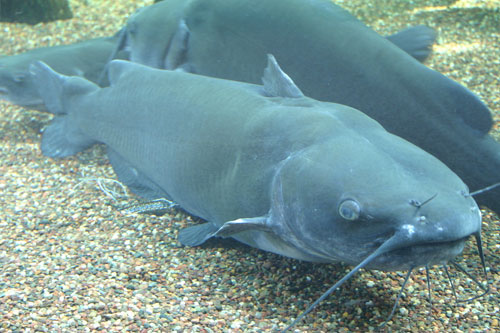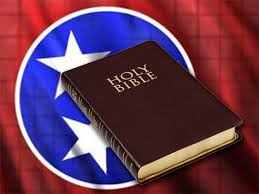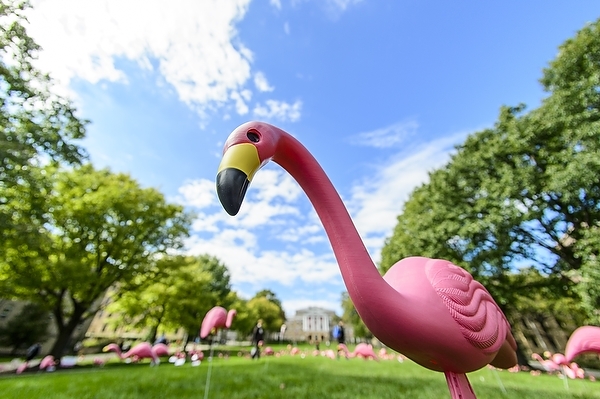The notion that he should be compensated for his creative genius was a defining issue in Prince’s career. And why not? Prince had been working at his craft since he was seven years old. And while his bragging that he could play “thousands of instruments” was surely an exaggeration (or…perhaps not), there is solid evidence that he could play around 27 different instruments. Prince paid his dues, playing with an assortment of bands, doing the night club circuit, and penning songs for other, bigger stars—all of this, to break into the musical stratosphere. He deserved to be fairly compensated, and in the spirit of getting right into things, just how much money does an artist have to make before it’s OK if sites like Apple and YouTube rip them off? How much money will you personally need to make, from your YugeIdea ™,--your app, your invention, your video game, your online Spielberg-esque movie that you upload—before all the bootleggers and pirateers get to start making their own chubby bucks off of your genius? Keep in mind that whenever the Pew Research Center or somebody like that decides to take a poll, roughly 4 out of every 5 respondents (or punkasses, as I call them) between the ages of 18 and 25 proudly proclaim that their primary goal in life is to become “rich and famous.” Let’s set aside, for a moment, that such aspirations are superficial and narcissistic—and go instead for a big reality check: you aren’t going to become rich and famous if people are doing to you what you are doing to artists right now, probably almost every day. Ripping off creative work.
The war started for Prince when he ditched his moniker, tired of constantly fighting with Warner Brothers for his share of the pie, and then dubbed himself “The Artist Formerly Known As Prince”, replacing his name with a symbol that could not be uttered, only explained. He continued the war by constantly stripping sites of his music, when they offered said music to the world for free, with no compensation to Prince. He even worked at suing sites like YouTube.
And Prince made an excellent point. The diminutive genius was fighting an uphill battle against those dopey Laputans who believe that “information should be free”. And by the way, kids. News Flash. Information (or knowledge) is free: Information is nothing more than understanding which is acquired by exposing yourself to ideas, facts, situations, and experience. Just as Archimedes acquired knowledge by studying the displacement of water, and shouting “Eureka”. Just as Sir Isaac Newton discovered gravity, by tossing assorted stuff from high places, presumably after he had checked to make sure nobody was walking down below. (Nobody he liked, at least.) All that stuff is free, always has been, always will be. As for the more formalized knowledge that really does matter a great deal: like understanding the basics of math, the fundamentals of science, the grammar of your chosen language, the history of the world, the geography of the planet—those rudiments are so ubiquitous as to be free, for all intents and purposes.
But here’s the thing, kids--when you say “information should be free”, I’m guessing that you aren’t really talking about the definition of a rhomboid or an understanding of how tectonic plates work. By “information should be free” you mean that the information about how to get around Steam’s firewall so you can download a bootleg copy of “Blood and Bacon”, that should be free. By “information should be free” you mean that you want to be informed about just how many times Beyonce’s booty bounces when she skips up that invisible ramp in “Put a Ring on It.” That’s the kind of information you want to be free. And nobody, oh youth of today, nobody at all, has an obligation to entertain you for free. Get Over It. Go, run to your safe space, free of microaggressions and fraught with trigger warnings, and Get To Work on Getting Over It.
Hey, kids and kommunists: stop saying information ought to be free. That is stupid. It makes no sense, it doesn’t work in the real world—and unless you are comfortable living in a Leninist-Marxist regime, it ain’t gonna happen any time soon. Ever since wandering troubadours expected a ha’ penny and a turkey leg for stopping by your little hamlet with a song, ever since railroad hobos expected a hot meal and a night sleeping in your barn, in exchange for their tramp art matchbox frames and doll furniture made from tin cans, entertainers and artists have expected to be paid for their work.
And here is another guess, which I’d wager is pure truth: you just know that all the people out there yammering about how everything should be free are the same people making a hue and cry about doubling the minimum wage. This kind of logical and moral inconsistency will not get you taken seriously in any of the realms that matter. Why should a person who wants to take home the same salary for flipping burgers that a soldier in the United States armed services makes, or an entry level teacher earns, NOT have to turn around and pay for the information and entertainment that somebody has created and packaged and posted on the World Wide Web? Do you really think that the people doing all of that very difficult creating and packaging and posting shouldn’t get any compensation? I’m not against raising the minimum wage. I’m just all for slapping sense into people who claim that information should be free, but manning the french fry station should be handsomely rewarded.
Take the sites that offer (illegally copied) free books, and (pirated) free audiobooks. HOW DO YOU THINK AN AUTHOR FEELS? He (or she) reads like a soul possessed, all through elementary school and high school, getting called names like “bookworm” and “egghead” by all the jocks and cheerleaders, even by the stoners who feel that their lives are infinitely more fun. Then, the budding author decides to major in English or Creative Writing, much to the horror of their parents, who wish the kid would go for degree in something marketable, like business, or at least take his uncle up on that job in the insurance game. Then, then writer slaves away for years, trying to put some pages together, then some titles. And all so when it comes out, some little slimeball with a YouTube station or an Amazon account can take your work, post it under their account, and make money off of your hard work? How dare they?
How dare you, who believe everything should belong to everybody, with all works labeled public domain, and no such thing as copyright—how dare you, with the click of few keys, take something somebody has been working on for years? And then you walk around, puffed up, thinking you are creative or an entrepreneur, with your big fat YouTube Channel full of titles … when all you really are, is a common thief. Returning for a moment to Prince, he put it best, in discussing sites like YouTube and Amazon: “They are clearly able to filter porn and pedophile material, but appear to choose not to filter out the unauthorized music and film content which is core to their business success.” Amazon claims it can tell when book reviews come from the same IP address—so your family or your roommate cannot review your book. And they went after novice writers for buying reviews off Fiver, in a big kerfuffle back in 2015, suing lots of little people. But when thieves steal entire novels, slap on a different cover, and sell that book as being a new book penned by a different writer, Amazon is mystified. Their software can’t detect it—because it would eat into their profits, no doubt.
The internet is rife with people having conversations about HOW TO DOWNLOAD, FOR FREE, PIRATED BOOKS, and they are so unashamed that they even phrase it that way. These same people would never go to a site explaining the nuances of being a pickpocket, or how to break into someone’s home, but they have no compunction about pirated books and music and images. And here is something else: why is that many of the people doing this defensively explain that they have no money to spend on these things? They can’t afford to actually purchase the content…but … BUT (and this is just a guess) they have money for laptops, tablets, smart phones, digital cameras, iPods, Play Stations, Oculus Rift goggles, Google Glasses, wide screen TVs, etcetera. But no money to buy songs or books or movies.
And no doubt, lots of people who have those devices, that abundance of electronic toys, are probably enjoying them when they sit their cheap asses down at a Starbucks, while sucking off of a five dollar coffee. Or at a Jamba Juice, with their five dollar smoothie, because they are too fine and fancy to suck back a carton of Minute Maid at home. But they refuse to pay for culture. Art. Information. Creativity. Knowledge. I find it hard to believe that most people out their enjoying pirated books and movies are too poor to find some other source other than the pirated stuff. Me, I align myself with the middle of the road, and the reasonable voices on the forum. If you are determined to get your college degree, and there is no other way that you can do it except to get a couple of textbooks under the table, then, I guess, go for it. But you do not need everything Rihanna ever recorded bootlegged onto your Walkman in order to be able to live a rich, full life. And owning everything in Yeezy’s oeuvre is not what Stewart Brand acolytes are talking about when they say that “information should be free.”
Information and entertainment on the internet is made possible by the fact the little people in their dark caves slave away creating, cogitating, packaging, formatting, posting it—and then, because they would like to get paid for their time, they throw some ads on their site, or ask you to watch a little commercial at the beginning of YouTube. But you, you HATE ads, as you announce with such huff in the forums, you HATE ads, you are far too busy and far too fine to watch ads, so you turn on your ad blocker. Because God forbid, you would compensate somebody for their time and creative energy. And while yes, I would completely agree that a few sites have far, far too many ads, jumping and flashing, and possibly infecting your computer. So stay away from those sites, already. But the truth of it is that most reputable sites have ads that constitute a little blurb off to the side, and they don’t impact your ability to get the information or entertainment.
And you know the end result of your ad blocker software? Here it is: you go to that FAVORITE SITE OF YOURS that you enjoy and use and exploit, while never looking at their ads. Maybe it is one of those great geek sites, that has helped you through so many technical problems with your laptop or digital camera. You visit the site a lot, maybe even engage in the forums and ask the guru questions. But you never help them monetize, because you refuse to look at their ads. Then one day you go, and the site is closed. Down. Doesn’t exist anymore. And you are so disappointed, because you really used that site a lot.
So what happens? You can’t find the answers you want online, because ass clowns like yourself have burned out all the good sites by not supporting them, because you refused to look at ads. So you end up dragging your laptop to Best Buy, where some bitter little nerd with a lot of attitude tells you that he probably can’t fix your device, or maybe he can for three hundred dollars. And why is he so bitter? Because he had a nice little gig going on at home, with his own website giving out this same kind of tech advice, answering people’s questions and helping people fix their own computers, but he couldn’t even make seventeen bucks a month doing that, because everybody wanted his savvy for free, they didn’t want to pay for it. Wouldn’t look at the ads. So now here he is, with a jag off supervisor always hovering, and a schedule he hates, and a humiliating name tag, surrounded by co-workers who are weird even by his standards, and he spends his shift telling stupid people like you how, yeah, he can fix your computer, but it’s on Best Buy’s watch, so it’s going to cost you. Hundreds.
Oh, and while we are talking about great web pages, ladies, same thing with that adorable DIY site that you just loved? You know, the one with the absolutely precious ideas for wedding centerpieces and instructions for how to make a Muppet animal out of an old mop and plastic eyes and some basic macramé skills—that DIY site is no longer there for you, and why? Because you felt entitled to that DIY guru’s ideas for free, you don’t think you should have to watch ads to get them. Same thing for YouTube channels. And then one day, the person creating that website and posting all those wonderful ideas decided that they couldn’t afford the hours and hours a week that it took to maintain the site, so instead they had to go get a stupid job in the crafting section at Walmart where they sell little bags of colored pompoms and pipe cleaners and pre-packaged papier-mâché mix and gallons of Elmer’s to endless legions of third graders working on dopey school projects--whereas before, that little DIY guru could labor lovingly on her fabulous DIY website on her own schedule in her bedroom slippers while sipping coffee and working around her children’s school schedules .. but not anymore, no, now she has a horrible work schedule, including graveyard shifts, and a smarmy boss who thinks they’re superior to the poor clerk, just because they are a senior associate at Walmart, and don’t have to wear the ugly blue smock. And you wonder why that Walmart clerk, who misses running their own DIY website, is so bitter. You did that. You did that, by insisting that everything should be free. By not watching the ads. And for those of you who say that there will just be other DIY sites and Geek sites and every other kind of site that you could need on the web, for you to cruise to, it doesn’t change the fact that you don’t like to pay for anything—not YouTube videos, not books, not Hulu, not videogames, not good websites with great information. But you know what? I don’t see you working for free. To quote one author, posting on the forums: “You think information should be free, how about you give me your social security digits and your bank account number? That’s information. And it should be freely available for file sharing. Give it to me now.”
And as to the obvious last question, am I a hypocrite? Of course I am. I am not going to sit here in my cave and pretend that I never, ever take advantage of free content when technically, legally, the creator ought to be compensated. Yeah, as a woman in my fifties, I sometimes engage in my embarrassing guilty pleasure of watching the The Monkees’ Cenozoic era cheezball video of “Daydream Believer”, and no, I don’t look for a YouTube station with a tip jar that goes straight to Mike Nesmith, Peter Tork, Micky Dolenz, or the estate of Davey Jones before I listen to it. I also engage in the completely illogical but probably morally sound argument that I personally create vast amounts of free content for the web, along with my history of charitable pursuits, so karmically, I am in a better position to listen to “Last Train to Clarkville” for free! Free! Free!, and my karmic debt has been paid. More to the point, the partners here at Pickford Studios buy lots of books and movies and music, and we dutifully pay our Netflix fees, avoiding those shadowy links on the New York Times offering free links to every movie ever made, even those that premiered last night. We watch lots of ads on YouTube and Hulu. And we do what we can to support websites we believe in. We give money twice a year to Wikipedia, for example. We do not believe that “information should be free”.
We believe that hard work should be compensated, and talent should be rewarded. So you pirateering cheapskates, and spoiled millennials, and other similarly situated parties: the voice of Prince’s ghost commands you: as of this moment, you will no longer expect everything to be free.
It’s rude, and it’s ungrateful, and it kills the creative spirit. So stop doing it.
| | | |












 RSS Feed
RSS Feed